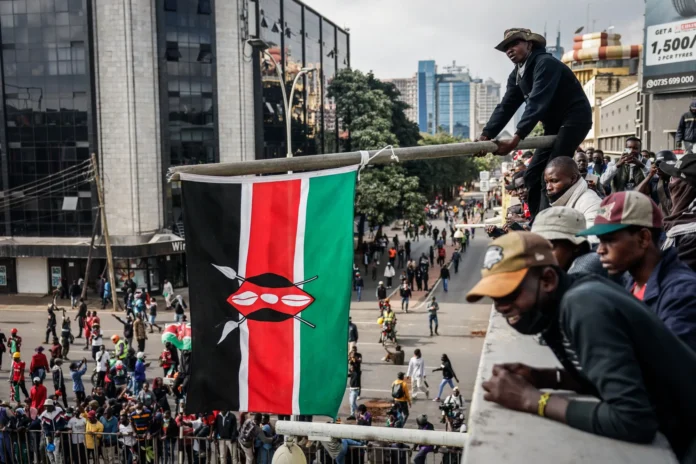On June 25, 2025, thousands of mostly young Kenyans took to the streets in 23 counties to mark the first anniversary of the 2024 “Youth Reawakening” protests, which had sprung up over proposed tax hikes in the Finance Bill 2024. The Kenya National Commission on Human Rights (KNCHR) reports that eight people died from gunshot wounds and roughly 400 suffered injuries ranging from bruises to critical wounds, as security forces moved in with tear gas, rubber bullets, and live ammunition to break up the crowds ft.com.
Anniversary of the Youth Reawakening Demonstrations
The protests began in the morning as peaceful gatherings in major cities—Nairobi, Kisumu, Nakuru, Mombasa, Eldoret—and smaller towns across the nation. Young activists who had driven the original 2024 rallies used social media channels such as X, TikTok, and Instagram to spread word of local meet-ups and share live footage of events timesofindia.indiatimes.com. They rallied under slogans like “Ruto Must Go” and “We Want Justice,” demanding accountability for the deaths and injuries from last year, and pressuring President William Ruto to address long-standing issues of inequality, corruption, and youth unemployment.
Violent Clashes and Casualties
By midday, the situation turned volatile. Security forces surrounded restricted zones, especially around Parliament in Nairobi, and fired tear gas to push back crowds. Witness reports and human rights groups confirm that some officers switched from non-lethal to live rounds, leading to the eight confirmed fatalities—all from gunshot wounds—and hundreds of injuries that overwhelmed local hospitals ft.com. Families of victims have since demanded an independent inquiry and compensation, with the Independent Policing Oversight Authority (IPOA) opening investigations into the use of excessive force.
Government Response and Media Restrictions
The government moved swiftly to limit coverage of the unrest. Authorities ordered a media blackout, disabling free-to-air signals for several TV stations and warning broadcasters against live reporting of the demonstrations timesofindia.indiatimes.com. Meanwhile, President Ruto, who temporarily relocated to the coast for safety, publicly backed the security forces’ actions as necessary to restore order and protect property. Critics argue that the blackout and harsh tactics violate constitutional rights and only fuel distrust between citizens and the state.
Gen Z’s Role and Unresolved Grievances
This year’s anniversary protests showed that Generation Z remains at the forefront of Kenyan civic action. Young leaders structured the mobilization without formal hierarchies, relying instead on encrypted chats and viral hashtags to coordinate. Their demands now extend beyond tax policy to call for justice for those who died in custody, transparency in government borrowing, and reforms to curb police abuse. Political analysts warn that if the government ignores these calls, street action may become a constant feature of Kenyan politics ft.comen.wikipedia.org.
Personal Analysis
Seeing young people risk their lives for change makes me believe Kenya stands at a crossroads where digital savvy meets deep frustration. The state’s heavy-handed tactics may quiet protests temporarily, but they cannot silence the grievances behind them. True stability requires real dialogue, not a media shut-down or more rubber bullets. If leaders fail to engage this powerful Gen Z movement, they risk facing more intense unrest that could derail Kenya’s progress.

